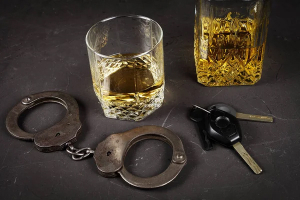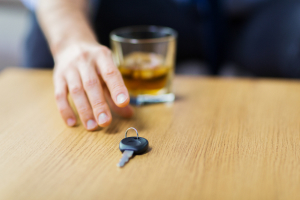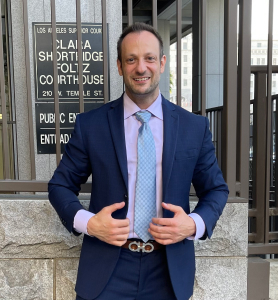
Navigating the complex landscape of DUI laws can be an overwhelming experience, particularly when you're grappling with the emotional and financial strain of an arrest. One of the initial inquiries that may arise in your mind is whether you are facing a misdemeanor charge or a felony. For example, is a DUI a felony in California? Understanding the specifics of your charges is the cornerstone for mounting an effective defense and protecting your rights.
There are certain situations where a DUI is a misdemeanor, but there are other situations where it might be considered a felony. At the Hurwitz Law Group, we always put your needs first, and we will make sure that you understand your rights and have all the information necessary to make sure you can mount the strongest possible defense.
California has stern Driving Under the Influence (DUI) laws designed to keep roads safe by deterring drivers from driving a vehicle while compromised by alcohol, drugs, or both. The laws governing DUI offenses in California are detailed under Vehicle Code 23152.
The law generally defines DUI as operating a vehicle with a blood alcohol concentration (BAC) of 0.08% or more, operating a vehicle while impaired by drugs, or driving under the combined influence of alcohol and drugs. However, the law has lower BAC thresholds for certain categories of drivers, such as commercial drivers or drivers under the age of 21.
The charges you may face for a DUI offense can vary from a misdemeanor to a felony, hinging on various circumstances. For instance, a DUI charge may be elevated to a felony if it is a repeat offense, caused injury or death, or involved certain other aggravating factors. Understanding the distinction between misdemeanor and felony DUI charges is crucial in assessing the potential penalties and deciding how to best handle your case. We will ensure you understand the charges you face before moving forward.

DUI offenses in California can be categorized in many ways, but the first way they are divided is between misdemeanors and felonies.
In California, a first, second, or third DUI offense within ten years is generally classified as a misdemeanor as long as the offense did not involve any aggravating factors such as injury or death.
A misdemeanor DUI offense might sound less serious than a felony, but it still carries significant penalties, including fines, probation, mandatory alcohol education programs, and potential jail time. A misdemeanor DUI conviction can also lead to a suspended driver's license and can significantly increase your auto insurance rates.
Be mindful that the exact penalties you will face will still depend on the circumstances surrounding your DUI and whether you have had prior DUI convictions.
Certain circumstances can elevate a DUI from a misdemeanor to a felony offense, carrying much steeper consequences. These circumstances could include having multiple DUI convictions within a specific period, causing bodily harm or death while driving under the influence, or other specific factors that increase the seriousness of the offense.
If you have already had three DUI offenses within ten years, the next DUI will be charged as a felony. In addition, if you seriously injure or kill someone under the influence of alcohol, your charges could be elevated to a felony.
Felony DUI convictions carry much more serious punishments, such as longer prison terms and steeper fines. Your driving privileges will probably be suspended for a much lengthier period of time, and you may also lose the right to vote. Therefore, it is critical for you to reach out to us as promptly as possible to schedule a case consultation.
There are numerous ways that a DUI can be charged as a felony in California. They include:
If you've already been convicted of three DUI offenses within the past ten years, a fourth DUI offense will be automatically charged as a felony under Vehicle Code 23152 VC. This is true even if the fourth offense did not involve any injury or damage.
If you've been formerly convicted of a felony DUI, any subsequent DUI arrest will be charged as a felony, regardless of the specific circumstances or severity of the offense. This is mandated under Vehicle Code 23550.5 VC. This pertains that even if it has been a long time since your last DUI if you have been sentenced for conviction of a felony DUI in the past, any subsequent DUI will also be charged as a felony.
Under Vehicle Code 23153 VC, a DUI offense that causes injury to another person is called a wobbler. In some cases, it might be charged as a misdemeanor. In other cases, it might be charged as a felony. Factors such as the magnitude of the injuries, the level of the driver's impairment, and the driver's prior DUI history can all determine whether the charge will be charged as a misdemeanor or a felony. If you have been charged with this distinct type of DUI, we may be able to speak to the prosecutor to see if we can get the charge lowered to a misdemeanor.
A DUI offense resulting in death can be prosecuted under several different statutes, including vehicular manslaughter while under the influence Penal Code 191.5(b) PC, gross vehicular manslaughter while under the influence Penal Code 191.5(a) PC, or even second-degree murder as described by California's "Watson" murder statute. The penalties for a conviction can be very serious, so we highly recommend that you call us without wasting time to discuss your case.
If you're charged with a DUI and had a child aged under 14 in the car, you may also face charges under California's child endangerment law, Penal Code 273a PC. This is another wobbler offense, and the decision to file the offense as either a misdemeanor or a felony will depend on several factors the prosecutor will consider.
These are several of the most frequently encountered ways that a DUI could be charged as a felony in California.

The implications of a felony DUI conviction in California are severe and life-altering. They typically include imprisonment for 16 months to three years, fines up to $1,000 (plus substantial penalty assessments), mandatory installation of an ignition interlock device (IID), a four-year suspension of your driver's license, and designation as a habitual traffic offender by the DMV.
Additionally, a felony conviction can have significant long-term impacts, such as limiting your job opportunities, restricting your ability to possess a firearm, and affecting your rights in family court proceedings.

Every DUI case is unique, and the best defense strategy will vary based on the unique circumstances of your situation. That said, common defense strategies often involve questioning the lawfulness of the traffic stop or the DUI checkpoint, challenging the accuracy or handling of breath or blood tests, disputing the signs of intoxication observed by the arresting officer, or presenting compelling evidence to establish that the defendant was not driving.
An experienced DUI attorney can analyze the facts of your case, identify potential weaknesses in the prosecution's evidence, and apprise you of the best strategy for your defense. There are specific scenarios where we may have the opportunity to get the charges lowered to a misdemeanor, and there are other situations where we might succeed in getting the case dismissed altogether.

A felony DUI charge can feel overwhelming, but you don't have to face it alone. At Hurwitz Law Group, we're deeply committed to providing compassionate, effective legal representation to every client. We understand the complexity of DUI laws and know how nerve-racking this time can be for you. Our seasoned attorneys are ready to guide you through the legal process, answer your questions, and fight hard for your rights.
Contact us today for a consultation, and let us help you navigate this challenging time.
Search
Categories